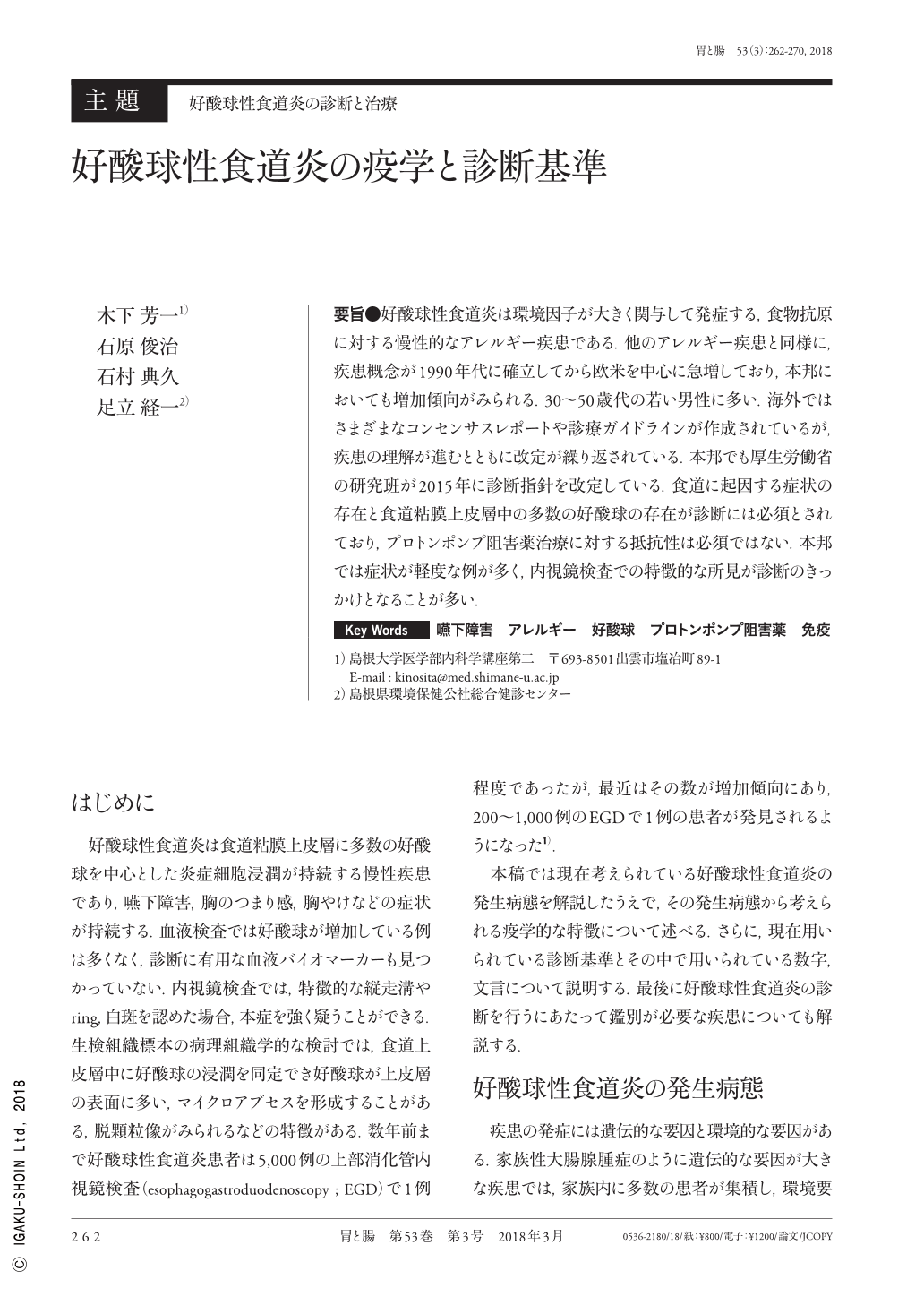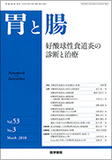Japanese
English
- 有料閲覧
- Abstract 文献概要
- 1ページ目 Look Inside
- 参考文献 Reference
- サイト内被引用 Cited by
要旨●好酸球性食道炎は環境因子が大きく関与して発症する,食物抗原に対する慢性的なアレルギー疾患である.他のアレルギー疾患と同様に,疾患概念が1990年代に確立してから欧米を中心に急増しており,本邦においても増加傾向がみられる.30〜50歳代の若い男性に多い.海外ではさまざまなコンセンサスレポートや診療ガイドラインが作成されているが,疾患の理解が進むとともに改定が繰り返されている.本邦でも厚生労働省の研究班が2015年に診断指針を改定している.食道に起因する症状の存在と食道粘膜上皮層中の多数の好酸球の存在が診断には必須とされており,プロトンポンプ阻害薬治療に対する抵抗性は必須ではない.本邦では症状が軽度な例が多く,内視鏡検査での特徴的な所見が診断のきっかけとなることが多い.
Eosinophilic esophagitis is a chronic allergic disease caused by food antigens, and its incidence and prevalence are strongly influenced by environmental factors. Its prevalence, as well as other allergic diseases, has increased remarkably in western countries after the establishment of the disease concepts in the 1990's. Similarly, its prevalence appears to have recently increased in Japan. Eosinophilic esophagitis is most frequently found in young males at the age of 30-50 years. Many consensus reports and clinical guidelines have been published in western countries and have been revised with the increasing knowledge of the disease. The Japanese diagnostic criteria have been established and revised in 2015 by the research group established by the Ministry of Health, Labour and Welfare. For the diagnosis of eosinophilic esophagitis, confirming the presence of esophageal symptoms and dense eosinophil infiltration in the esophageal epithelial layers are described to be mandatory as per these criteria. However, resistance to proton pump inhibitor treatment is not mandatory. The symptoms most Japanese patients present with are not strong and specific, and the presence of characteristic endoscopic findings is an initial step for the diagnosis of eosinophilic esophagitis.

Copyright © 2018, Igaku-Shoin Ltd. All rights reserved.


